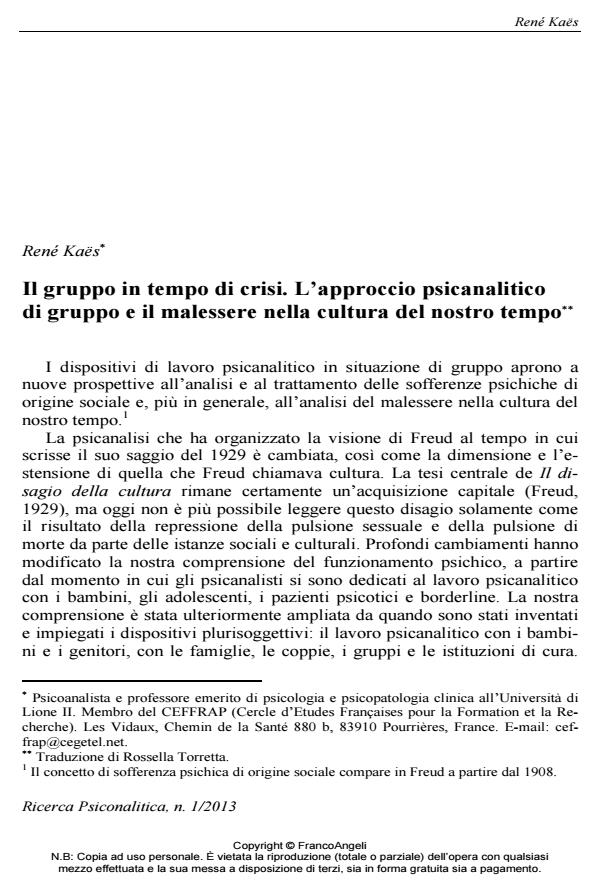Groups in a period of crisis. the psychoanalytical approach to groups and the discontent in today’s culture
Journal title RICERCA PSICOANALITICA
Author/s René Kaes
Publishing Year 2013 Issue 2013/1
Language Italian Pages 18 P. 11-28 File size 642 KB
DOI 10.3280/RPR2013-001002
DOI is like a bar code for intellectual property: to have more infomation
click here
Below, you can see the article first page
If you want to buy this article in PDF format, you can do it, following the instructions to buy download credits

FrancoAngeli is member of Publishers International Linking Association, Inc (PILA), a not-for-profit association which run the CrossRef service enabling links to and from online scholarly content.
Psychoanalytical practice has changed under the joint effect of social and cultural factors and of the forms of psychic suffering depending on them. This evolution led to the development of further devices for psychoanalytical work with families, couples, groups and institutions. Experience with groups opened new access to the knowledge of the unconscious and its effects on subjectivity, the layout of intrapsychic space, of the space of intersubjective links and group space. The concepts and models used to explain psychic reality in these three spaces are relevant for the treatment of the various forms of today’s discontent.
Keywords: Civilization and its discontent, unease in today’s world, group psychoanalytic approach, subject of the unconscious and social subject, unconscious alliances, metaframework, metapsychic and metasocial guarantors
- Il corpo interrotto Rossella Torretta, in RICERCA PSICOANALITICA 2/2016 pp.45
DOI: 10.3280/RPR2016-002004
René Kaes, Il gruppo in tempo di crisi. L’approccio psicanalitico di gruppo e il malessere nella cultura del nostro tempo in "RICERCA PSICOANALITICA" 1/2013, pp 11-28, DOI: 10.3280/RPR2013-001002